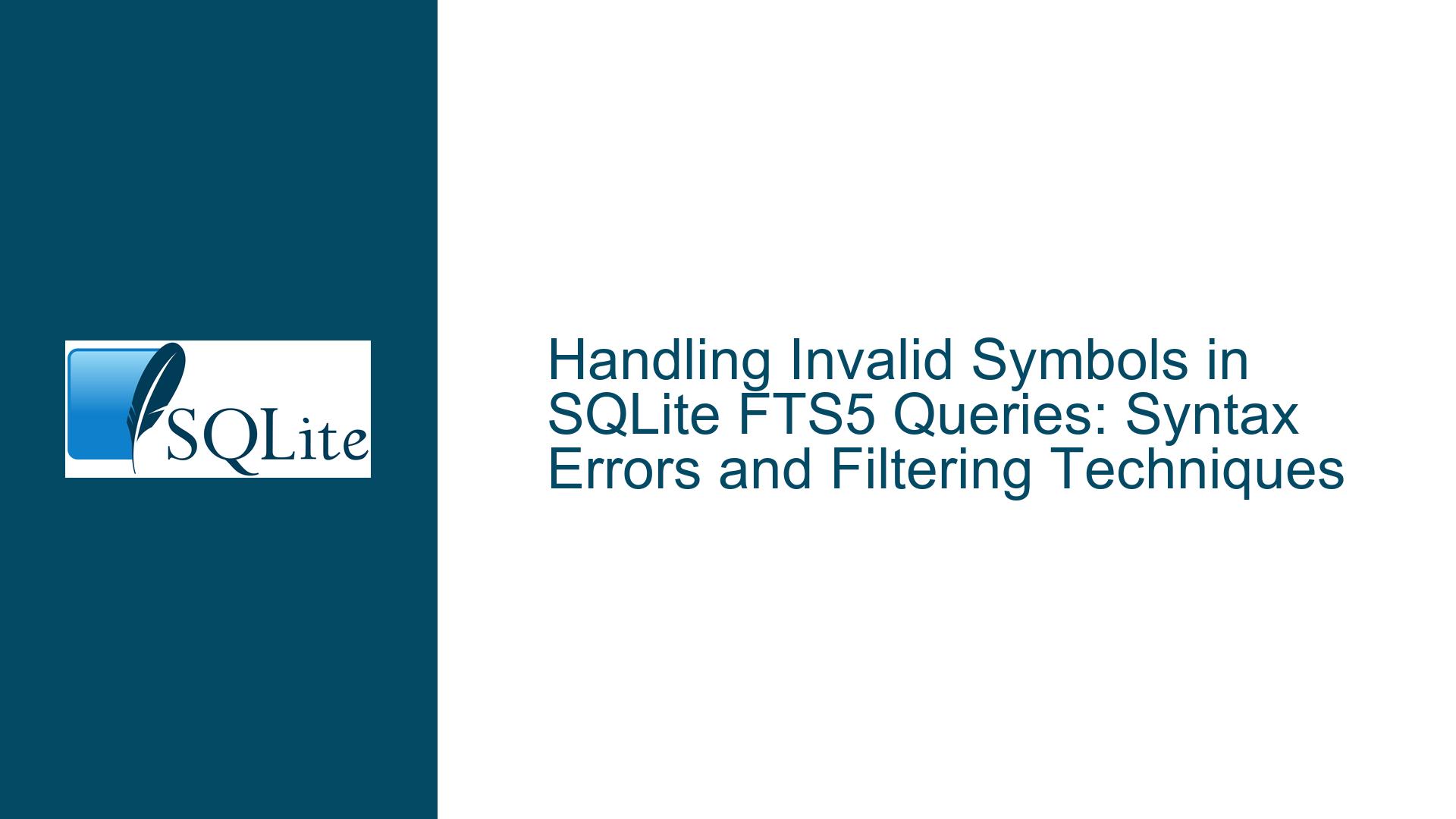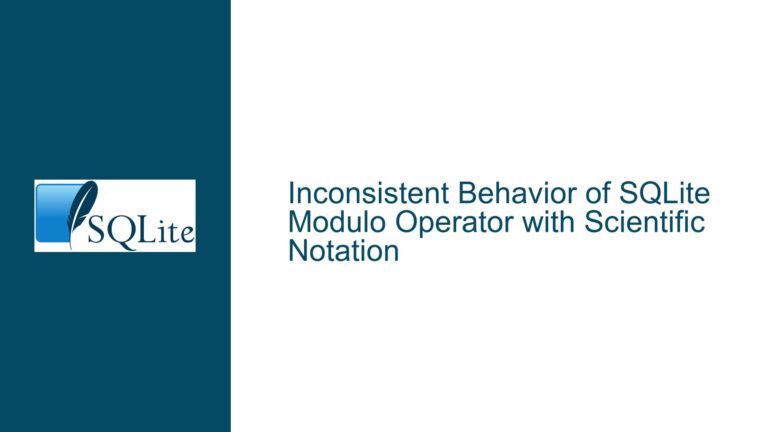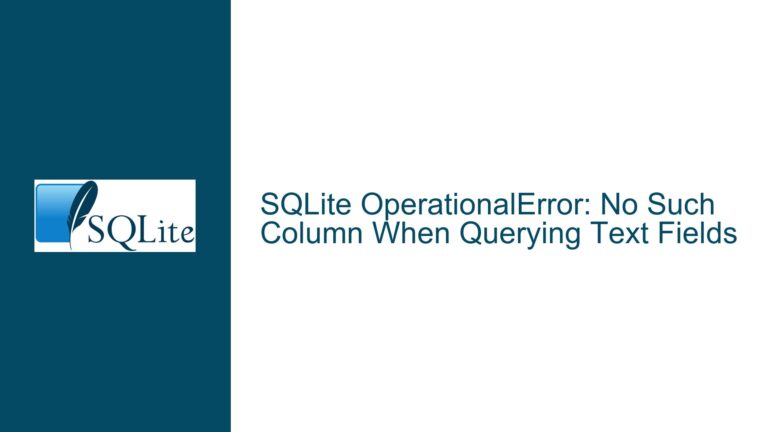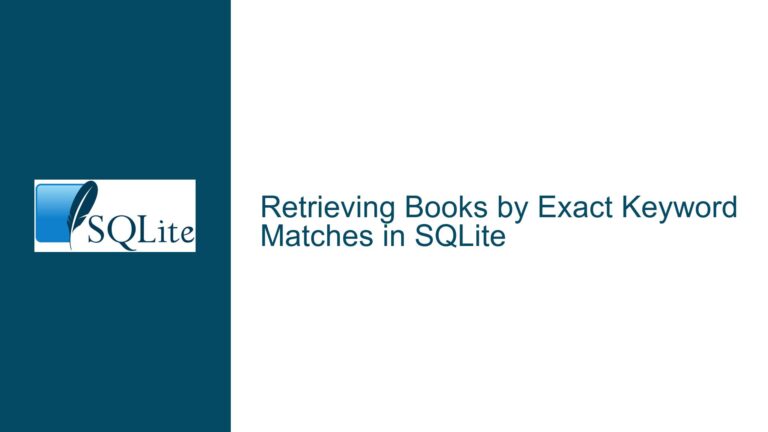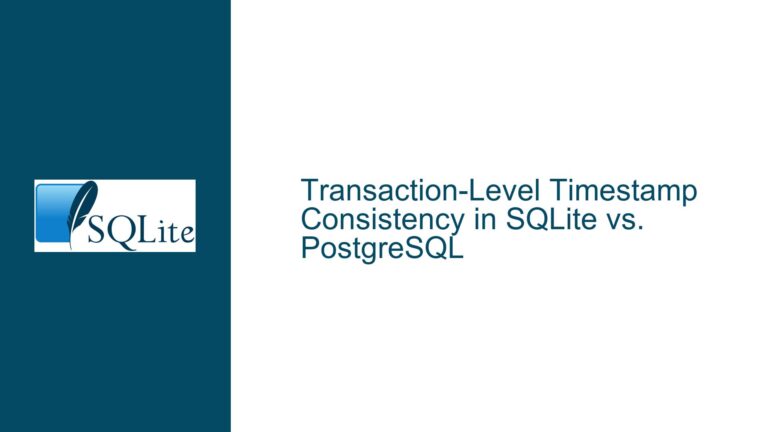Handling Invalid Symbols in SQLite FTS5 Queries: Syntax Errors and Filtering Techniques
Understanding FTS5 Query Syntax Errors and Automatic Query Transformation
SQLite’s FTS5 extension is designed to enable fast, flexible full-text search capabilities. However, its query parser enforces strict syntax rules that differ from informal, human-language search patterns. A common challenge arises when users input queries containing symbols not recognized by FTS5’s syntax, such as periods (.), hyphens (-), or slashes (/). These symbols trigger syntax errors because FTS5 interprets them as operators or structural elements in its query language. For example, a query like sqlite.org will fail with a "syntax error near ." message because the period is not a valid operator in this context.
The root of this problem lies in the gap between user expectations and FTS5’s formal syntax requirements. Users accustomed to informal search interfaces (e.g., web browsers or document editors) often input terms without considering operator rules. FTS5, by contrast, expects queries to conform to its syntax, which includes explicit use of AND, OR, NEAR, and quoted phrases. This disconnect becomes evident when migrating from custom full-text solutions to FTS5, as the latter imposes stricter validation.
The SQLite.org website’s search implementation provides a practical example of mitigating this issue. When a query like describe.how is submitted, the system does not return a syntax error. Instead, it transforms the input into a valid FTS5 query by treating describe.how as a phrase or splitting it into components. This behavior suggests an automatic preprocessing layer that either escapes invalid symbols or restructures the query to comply with FTS5 rules. The key takeaway is that applications can bridge the gap between informal user input and formal FTS5 requirements through strategic query normalization.
Common Causes of Syntax Errors and Challenges in Query Normalization
Syntax errors in FTS5 queries stem from three primary sources: unrecognized operators, misplaced symbols, and unquoted phrases containing special characters. FTS5’s parser treats certain symbols as reserved operators, including ., :, -, and ". When these symbols appear in user input without proper context, the parser cannot resolve them, leading to errors. For instance, a query like sqlite.org contains a period that FTS5 interprets as an incomplete operator. Similarly, a hyphen in full-text-search might be mistaken for a range operator if not handled correctly.
Another challenge is the variability of user input. Some users might intentionally include FTS5 operators (e.g., AND, OR) to refine their searches, while others input unstructured text. This dual usage complicates automated preprocessing, as the system must distinguish between intentional operators and casual symbols. For example, a user searching for backup OR restore expects the OR operator to function, but a query like backup.restore (with a period) requires transformation to avoid a syntax error.
The SQLite.org approach involves a fallback mechanism: first attempting to execute the raw query, then reformatting it if an error occurs. This method splits the input string into whitespace-separated tokens and wraps each token in double quotes. For example, sqlite org becomes "sqlite" "org", and to.help becomes "to.help". However, this strategy introduces edge cases. If the original query already contains quotes or operators, the transformation logic must account for them to avoid invalid syntax. For instance, a query like "sqlite org" to.help must be converted to """sqlite" "org""" "to.help"—a non-trivial process requiring careful escaping.
Implementing Robust Query Filtering and Transformation Strategies
To resolve syntax errors and ensure compatibility with FTS5, applications must implement a preprocessing pipeline that normalizes user input. The following steps outline a robust strategy inspired by the SQLite.org approach:
Direct Query Execution with Error Handling:
First, execute the raw user query against the FTS5 table. If no error occurs, return the results. If a syntax error is detected, proceed to preprocessing. This ensures that valid queries (e.g., those with intentional operators) are executed as-is, preserving their semantic intent.Fallback Query Normalization:
Split the input string into tokens using whitespace as a delimiter. For each token, apply the following rules:- If the token contains no reserved symbols (e.g.,
.,:,-), leave it unmodified. - If the token contains reserved symbols but no whitespace, wrap it in double quotes. For example,
sqlite.orgbecomes"sqlite.org". - If the token contains quotes or whitespace, escape existing quotes and wrap the entire token in triple quotes. For example,
"sqlite org"becomes"""sqlite" "org""".
This approach ensures that reserved symbols are treated as literal characters within quoted phrases, preventing parser errors. It also handles nested quotes by leveraging SQLite’s triple-quote syntax for escaping.
- If the token contains no reserved symbols (e.g.,
Edge Case Handling and Validation:
After normalization, rejoin the tokens with spaces and execute the modified query. Test edge cases such as mixed operators and symbols (e.g.,file:v1.2.3), and ensure that intentional operators likeNEARorANDare preserved. For advanced use cases, consider using a custom tokenizer to preprocess input or integrating a query parser that supports both formal and informal syntax.
By adopting this strategy, applications can emulate the SQLite.org search experience, reducing user friction while maintaining compatibility with FTS5’s strict syntax. Developers should also consider logging raw and normalized queries to identify recurring patterns and refine preprocessing rules over time.
